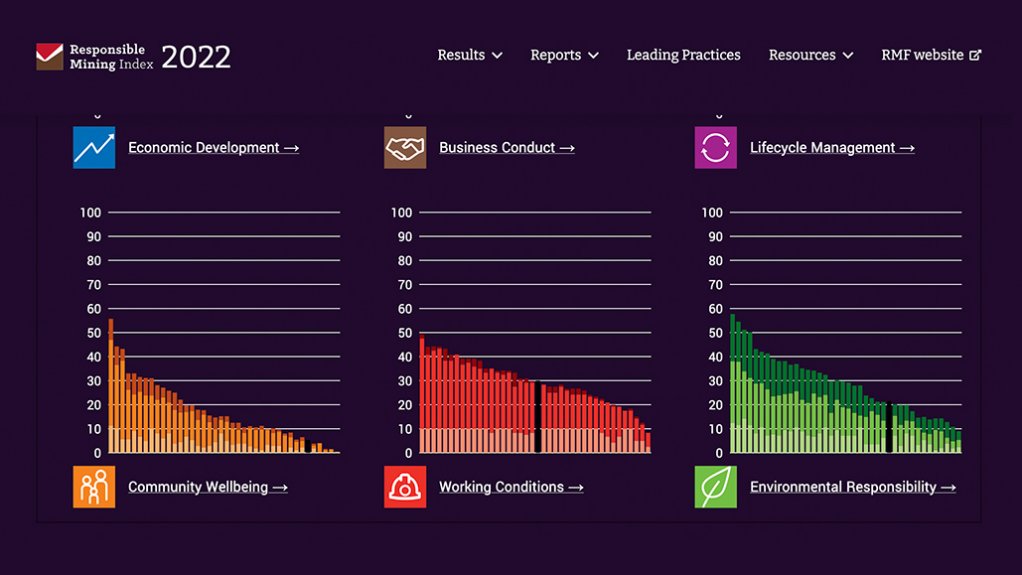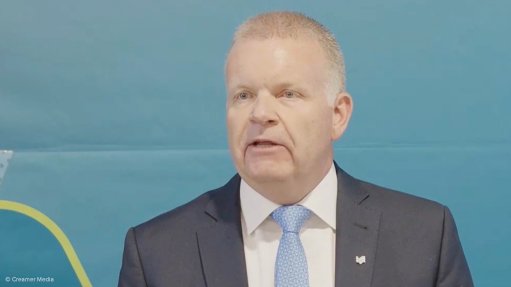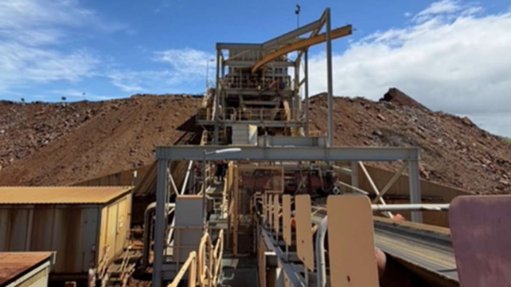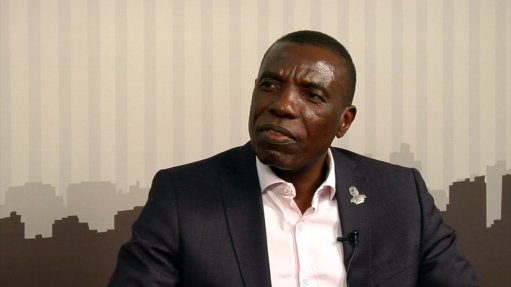ESG slowing down as energy transition highlights mining as indispensable – RMF


Responsible Mining Foundation report covered by Mining Weekly’s Martin Creamer. Video: Darlene Creamer.
Section of RMI Report 2022.
JOHANNESBURG (miningweekly.com) – The energy transition is highlighting mining as an indispensable industry, said Responsible Mining Foundation (RMF) CEO Hélène Piaget in opening a webinar on 'Responsible Mining Index (RMI) Report 2022', which reports a slowdown in economic, environmental, social and governance (ESG).
“Yet there is a constant tension between society’s need for the products of mining and the harmful impacts that mining can and does cause. So society finds itself in a constant conflict of conscience when it comes to the mining industry,” said Piaget. (Also watch attached Creamer Media video.)
The RMI Report 2022 measures how a sample of mining companies are responding to the ESG expectations of society.
“But the same companies, who can show that they are making some progress on ESG policies and procedures, could at the same time, be a company that causes harm to people and environments in any number of ways. This is a contradiction that we have in trying to encourage continuous improvement,” said Piaget, who added that the reason why the RMF and many others were working to normalise responsible mining was exactly because of the potential harm that mining could cause.
The webinar, covered by Mining Weekly, was moderated by Synergy Global Consulting director Ed O’Keefe and participated in by International Council on Mining and Metals CEO Rohitesh Dhawan, IndustriALL Global Union mining director Glen Mpufane, Publish What You Pay executive director Elisa Peter, Polymetal company secretary Tania Tchedaeva and Triple R Alliance director Luc Zandvliet.
The report is described as an evidence-based assessment of 40 large-scale mining companies and 250 mine sites operating in 53 countries. These companies together represent about 30% of the value of global production.
These listed, private and State-owned entities are responsible for about 1 000 operational and closed mine sites, with the report providing a snapshot of how the industry is progressing and the gaps that still require more effort, both at the corporate level and at mine sites, where harm prevention and risk limitation are regarded as being essential to responsible mining.
“Mine sites matter as this is where most salient harm can happen to people and environments, where the impacts of climate change are evident, so it is important to observe whether company systems are, in fact, being implemented as intended, at the operations,” she said.
Thematic areas covered by RMF include economic development, business conduct, life-cycle management, community well-being, working conditions, and environmental responsibility, with cross-cutting issues including human rights, gender, harm prevention and climate change.
The results, as an overall observation, show signs of continuous improvement.
“Things are moving in the right direction, although with some slowing down now in 2022,” said Piaget.
The overall results for 2020 showed an average increase of 16% on a previous report, and the 2022 report now shows an average increase of 11%.
Given the fact that most companies had shown substantive profits, one could not ascribe the slowdown to the pandemic alone.
“We do have questions to ask about the slowing down,” she said.
Observed has been a slowing down of the better performing companies towards responsible mining practices.
“Do they feel that they are doing okay next to their peers? Are the leaders displaying ESG fatigue, or not being meaningfully challenged by investors and regulators?” she asked.
“It’s clear that there’s still a long way to go to reach the expectations of society on responsible mining,” she said.
Many of the 250 mine sites were showing no evidence at all of informing and engaging with communities on salient issues related to the licence to operate and questioned why so few sites shared any information on these issues.
Illustrated graphically was the huge gap in mine-site data on basic issues. Sixty mine sites provided no information at all on any of the salient issues.
Article Enquiry
Email Article
Save Article
Feedback
To advertise email advertising@creamermedia.co.za or click here
Press Office
Announcements
What's On
Subscribe to improve your user experience...
Option 1 (equivalent of R125 a month):
Receive a weekly copy of Creamer Media's Engineering News & Mining Weekly magazine
(print copy for those in South Africa and e-magazine for those outside of South Africa)
Receive daily email newsletters
Access to full search results
Access archive of magazine back copies
Access to Projects in Progress
Access to ONE Research Report of your choice in PDF format
Option 2 (equivalent of R375 a month):
All benefits from Option 1
PLUS
Access to Creamer Media's Research Channel Africa for ALL Research Reports, in PDF format, on various industrial and mining sectors
including Electricity; Water; Energy Transition; Hydrogen; Roads, Rail and Ports; Coal; Gold; Platinum; Battery Metals; etc.
Already a subscriber?
Forgotten your password?
Receive weekly copy of Creamer Media's Engineering News & Mining Weekly magazine (print copy for those in South Africa and e-magazine for those outside of South Africa)
➕
Recieve daily email newsletters
➕
Access to full search results
➕
Access archive of magazine back copies
➕
Access to Projects in Progress
➕
Access to ONE Research Report of your choice in PDF format
RESEARCH CHANNEL AFRICA
R4500 (equivalent of R375 a month)
SUBSCRIBEAll benefits from Option 1
➕
Access to Creamer Media's Research Channel Africa for ALL Research Reports on various industrial and mining sectors, in PDF format, including on:
Electricity
➕
Water
➕
Energy Transition
➕
Hydrogen
➕
Roads, Rail and Ports
➕
Coal
➕
Gold
➕
Platinum
➕
Battery Metals
➕
etc.
Receive all benefits from Option 1 or Option 2 delivered to numerous people at your company
➕
Multiple User names and Passwords for simultaneous log-ins
➕
Intranet integration access to all in your organisation




















